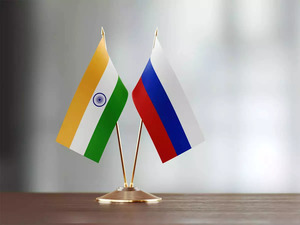For both India and Russia the technological independence of its market is a priority, said Vasily Brovko, Director for Special Assignments of RostecState Corporation, Chairman of the Board of Directors of NtechLab.
India and Russia share close bonds for more than 20 years by the Declaration on Strategic Partnership. In an attempt to push economic ties commensurate with political ties, both large corporations and promising startups are driving innovation between the two countries in the near future.
Artificial intelligence and cybersecurity
In a recent report titled,“Through trust and partnership – to new heights of cooperation”, it was noted that Russia and India plan to work more intensively together on the creation of high-tech products. Among the priority areas is the development of artificial intelligence, robotics and nanotechnology, as well as the pharmaceutical sector.
Work in this area is already ongoing and to date there have been some notable successes. A private school in Chennai, for instance, is using a Russian developmentcalled Promobot V.4 to teach about service robotics.
Oleg Kivokurtsev, Development Director of Promobot, explained, “Children can learn everything about the work of artificial intelligence with a live example of AI in action. This will help them independently create and quickly develop projects”.
As the Covid-19 pandemic forced companies to move to remote working, the number of data thefts and cyber-attacks around the world shot up dramatically. At the beginning of the year, the Russian developer of cybersecurity systems Zecurion signed a partnership agreement with the Indian IT distributor BD Software. The companies jointly plan to develop solutions to prevent persistent and deeply damaging corporate fraud.
According to Lidia Kulik, Head of India Research,SKOLKOVO Institute for Emerging Markets Research, digital transformation is today one of the main priorities for Russia. She said: “…to create a secure digital space, Russia and India, as two independent IT markets, must develop and coordinate security principles, especially concerning cyber threats.”
Video analytics and telecommunications
As part of the hardware and software complex for Moscow’s “Safe City”, video surveillance is being modernized with advanced video analytics. The new facial recognition system can read data from 125,000 cameras in the capital. A structural update is also planned for PARSIV, a gateway through which police officers can connect to the Moscow’s facial recognition system to search for criminals. Technology is being developed with the use of the system’s cameras to record the routes andmovement of criminals. Innovations in the field of public security are not only limited to Moscow. Discussions are underway to install new camera systems across the regions and to create a national video surveillance platform.
Earlier, the Indian Western Railway, in a major strategic move, commissioned video cameras with face recognition functionality. The video analytics system developed by the Russian company NtechLab was installed at 30 railway stations on railway sections between the western Indian states of Gujarat and Maharashtra, including Mumbai.
Vasily Brovko, Director for Special Assignments of RostecState Corporation, Chairman of the Board of Directors of NtechLab said, “It is of great significance that this platform was introduced in India, which is today is one of the fastest-growing technology markets in the world and where all the world’s leading IT leaders are trying to gain a foothold.”
“However, for India, as well as for Russia, the technological independence of its market is a priority. The governments don’t want to be tied into a small number of vendors. Therefore, in addition to exporting NtechLabsolutions, we are ready to offer the Indian market close cooperation within a wide range of technological projectssuch as developing wireless communications for 5G and also 6G.”
Artem Kukharenko, Founder, NtechLab said, “Despite many years of friendly contacts between our countries, cooperation between Russia and India in the field of IT, unfortunately, remains at a rudimentary level. We are certainly aware of the success of individual companies in the Indian market but this does not reflect the enormous potential of greater cooperation. So any advancement in technology cooperation is certainly to be praised andencouraged.”
Tatyana Shaumyan, Head of the Center for Indian Studies, Institute of Oriental Studies Russian Academy of Sciences, noted, “India and Russia already have established economic relations, for example, in energy, metallurgy and space technologies. New opportunities are emerging today in medicine, pharmaceuticals, IT and telecommunications as part of joint development initiatives.”
https://cio.economictimes.indiatimes.com/news/strategy-and-management/india-russia-coop-in-6g-cybersecurity-and-video-analytics-gathers-momentum/87035110





